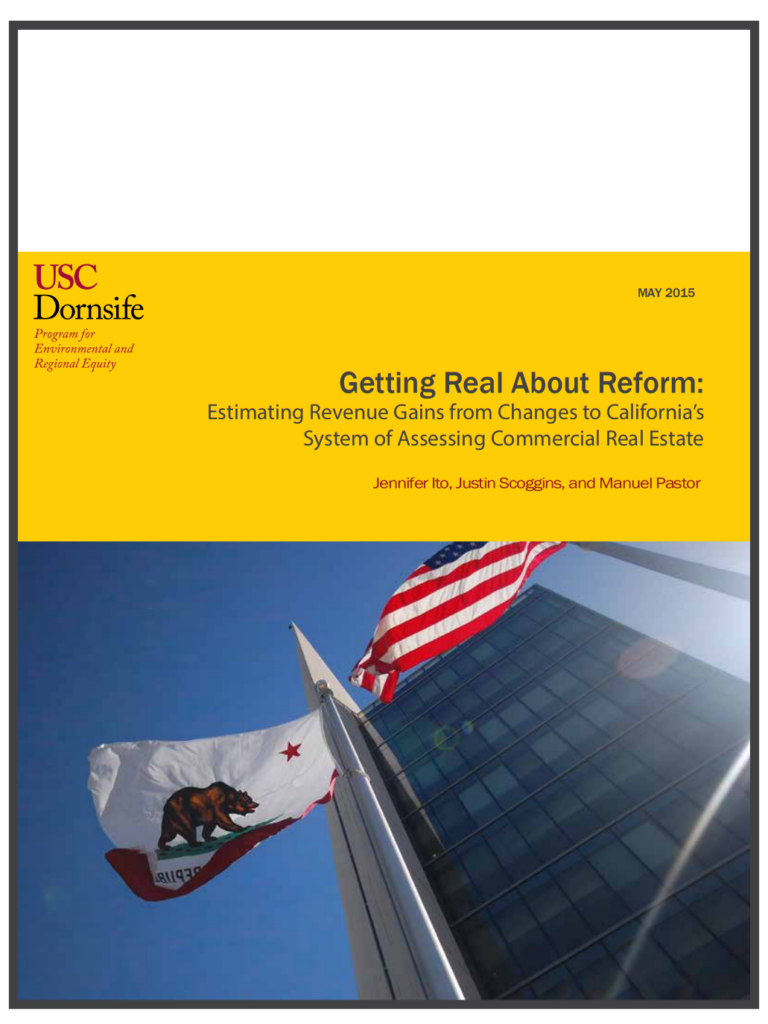
May 2015
By Jennifer Ito, Justin Scoggins, and Manuel Pastor
Please note: reports dated earlier than June 2020 were published under our previous names: the USC Program for Environmental and Regional Equity (PERE) or the USC Center for the Study of Immigrant Integration (CSII).
In coming years, tax reform will likely be on the agenda in California. Given the large-scale cuts that were experienced during the Great Recession and the fact that a subset of new revenue generated from Proposition 30, approved by voters in 2012, is set to expire at the end of 2016, discussions about both structural changes in the way we tax and whether such changes will yield new revenues will occupy the attention of both policymakers and the public.
One such set of discussions is concerned with revisiting the provisions of commercial property assessments ushered in under Proposition 13, which was approved by voters nearly 40 years ago. While much has been written about Proposition 13 and its effect on residential property, only limited empirical analysis has been generated with regards to commercial property.
In this brief, we build on earlier work of academics from the California State University, Sacramento and experts from Blue Sky Consulting Group and provide an analysis of ten consecutive years of county assessor data on all non-government-owned commercial and industrial property in California covering the years 2004 to 2013.
We use this data to focus on one question: How much additional revenue would be collected from changing the way commercial property is assessed from one based on acquisition value to one based on market value?



